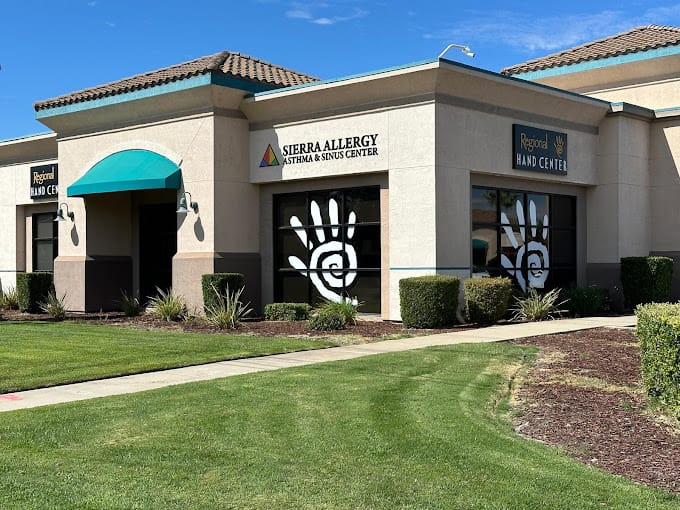Do you love to have dogs as pets, but fear them getting prone to diseases and allergies like eczema? Eczema is a common allergic skin disease even in dogs, a condition caused by a variety of factors, including genetics, environmental allergens, and even certain infections. That dry, itchy skin, inflamed and sore with redness, can be extremely distressing to you as it is to your loved pet. While a cure for eczema doesn’t exist, there are a number of treatment and management options available. Let’s break them down.

Defining eczema & why it’s risky in dogs
Eczema, a skin condition due to dryness, causes inflammation, redness and itching. It makes the skin sore, resulting in the dog scratching and licking it, which makes it even worse. There are 2 types of eczema in dogs: wet eczema or acute moist dermatitis and dry eczema due to inflammation. The wet eczema is also referred to as ‘hotspots’, seen as red, seemingly moist patches on the skin.
While the most common point for eczema in dogs is the belly, it can potentially happen at any place. Paws and the armpits are also sensitive points to eczema, while that in the ears can be extremely painful. The face, sides and back are also affected as a side effect of certain skin conditions.
Recognizing these signs of eczema in your dog is essential; a first step in the process of treatment.
- • Itching
- • Overly rubbing & scratching
- • Frequent scratching of ears & head shaking
- • Chewing the paws
- • Redness in the skin
- • Rashes
- • Loss of hair
- • Scaly & greasy skin
Symptoms of dog eczema
Recognizing these signs of eczema in your dog is essential; a first step in the process of treatment.
- • Itching
- • Overly rubbing & scratching
- • Frequent scratching of ears & head shaking
- • Chewing the paws
- • Redness in the skin
- • Rashes
- • Loss of hair
- • Scaly & greasy skin

Causes of eczema in dogs
Anything that affects the skin and damages it leads to eczema in dogs. Further being triggered as the dog scratches and licks the area affected. Common causes include:
- • Allergies
- • Insect bites
- • Parasites
- • Injuries that do not heal properly
- • Infections: bacterial and fungal
- • Contact irritants
How to manage & prevent dog eczema?
To manage eczema in dogs, the first step is to identify the allergens and then minimize them. Managing skin health comes next, and treatment options are a must by visiting a veterinarian.
Management of eczema in dogs
Identifying allergens
- • Controlling parasites: Regularly control fleas, as venomous bites can worsen eczema
- • Diet: Ask the veterinarian for potential food allergies
- • Controlling the environment: Dust your dog’s bed place and control exposure to environmental allergens like grass, dust and pollen.
Maintaining skin health
- • Giving a bath regularly: Look for the ‘hypoallergenic’ tag on shampoos, often recommended by the vet.
- • Topicals: Consider using moisturizing creams, medical shampoos, and itch preventing sprays on the vet’s guidance.
Treatment for eczema in dogs
- • Medications: Prescribed medications such as antihistamines, corticosteroids, or others help manage inflammation and itching.
- • Immunotherapy: Allergy shots help to desensitize your dog to specific allergens.
- • Antibiotics
Prevention strategies for eczema in dogs
Carefully preventing eczema is better than treating it. Let’s look into what proactive measures can be taken to save your dog from eczema.Detecting symptoms early
Veterinary checkups on a regular basis help you to keep your dog safe from worsening conditions.Reducing stress
Help your dog relax and enjoy, as stress can worsen the condition of eczema.Improving skin barrier
Insert Omega-3 fatty acids into your dog’s diet as it is a well known facilitator of your dog’s skin barrier’s strength.Is dog eczema contagious to human beings?
Eczema in dogs is generally not transmissible; however, if bacteria or fungi are present in a dog’s skin, they can worsen with eczema, causing infections in humans. Therefore, it is necessary to maintain good hygiene when interacting with your pet in this condition.Frequently Asked Questions
What causes eczema in dogs?
Eczema in dogs can be caused by allergens (like pollen, food, or fleas), poor grooming, stress, or underlying medical conditions. Environmental triggers such as dry air or dust mites may also contribute.
How can I tell if my dog has eczema or just dry skin?
Dry skin is usually flaky and mild, while eczema often includes intense itching, redness, oozing, and scabs. If your dog is excessively scratching or licking one area, it’s best to consult a vet for a proper diagnosis.
Is eczema in dogs contagious to other pets or humans?
No, eczema itself isn’t contagious. However, if the skin is infected, bacteria or fungus might spread between pets, so it’s important to keep the area clean and monitor other animals.
Can food allergies cause eczema in dogs?
Yes, food allergies are a common cause of eczema in dogs. Ingredients like beef, chicken, dairy, or wheat may trigger skin reactions. Your vet might recommend an elimination diet to identify the allergen.
When should I take my dog to the vet for eczema?
If your dog’s itching doesn’t go away within a few days, or if the skin is red, swollen, or oozing, it’s time to see a vet. Delaying treatment can lead to infections and worsening symptoms.
Is eczema painful for dogs?
Yes, it can be very uncomfortable and even painful, especially if the skin becomes raw, inflamed, or infected. Early intervention can help ease your dog’s discomfort.





